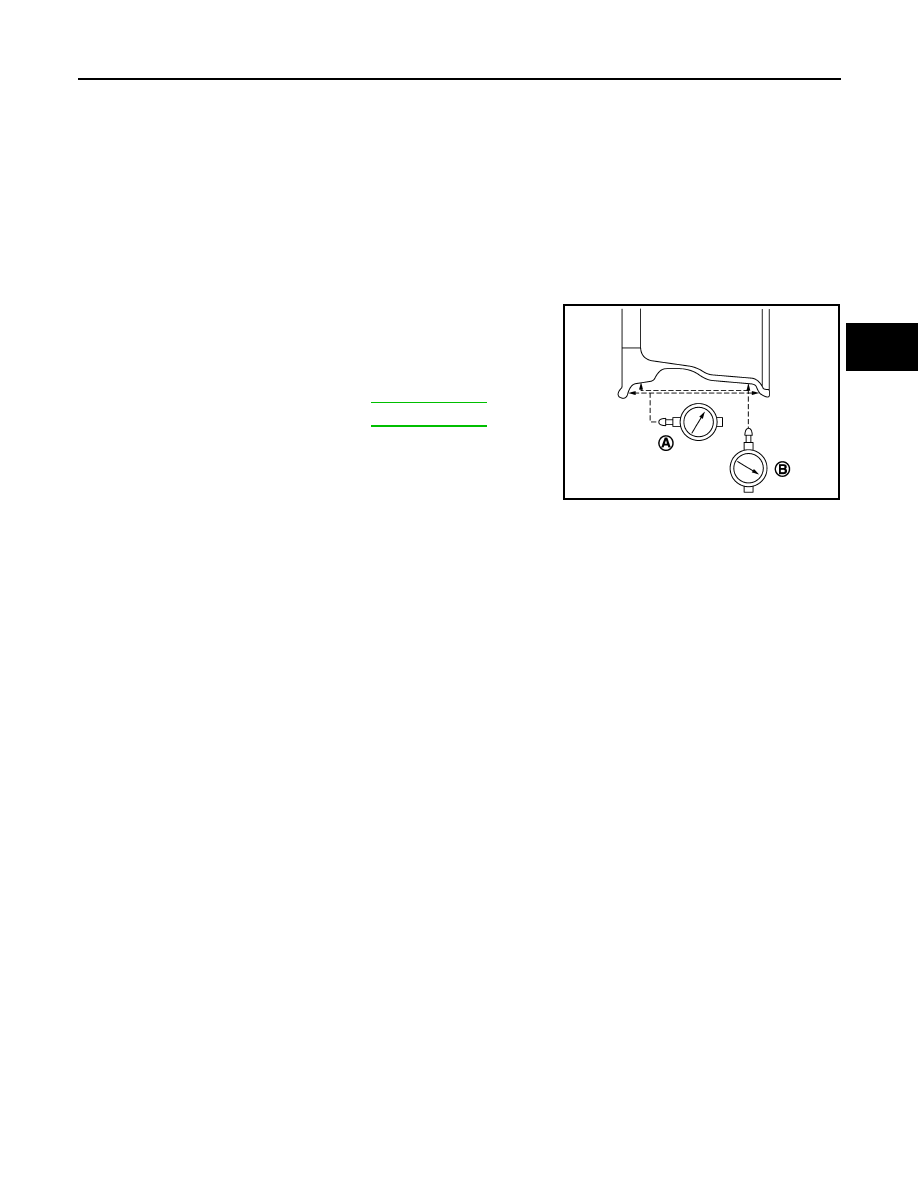Nissan Versa Note. Manual - part 868

WHEEL
WT-41
< PERIODIC MAINTENANCE >
C
D
F
G
H
I
J
K
L
M
A
B
WT
N
O
P
PERIODIC MAINTENANCE
WHEEL
Inspection
INFOID:0000000009446796
1. Check tires for wear and improper inflation.
2. Check wheels for deformation, cracks and other damage. If deformed, remove wheel and check wheel
runout.
a. Remove tire from wheel and mount wheel on a balancer machine.
b. Set dial indicator as shown.
c. Check runout, if runout value exceeds the limit, replace wheel.
Limit
Axial Runout (A)
.
Radial Runout (B)
.
SEIA0737E